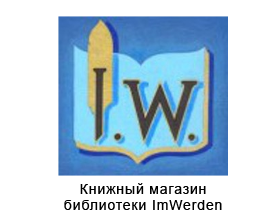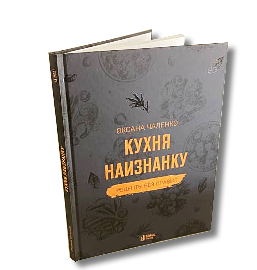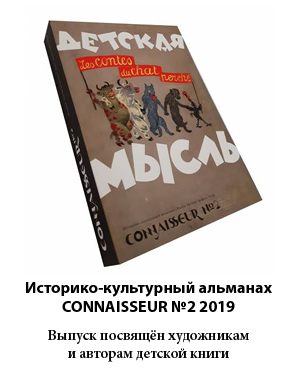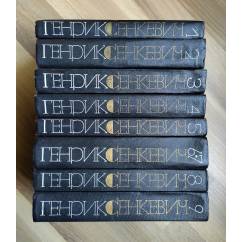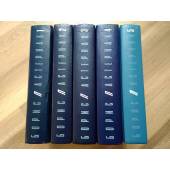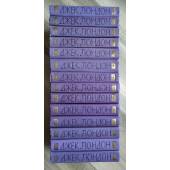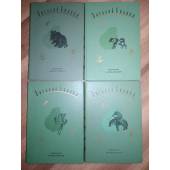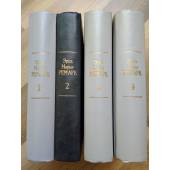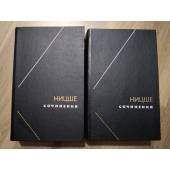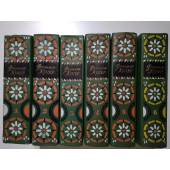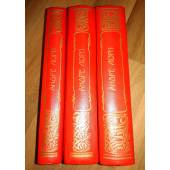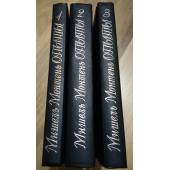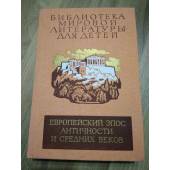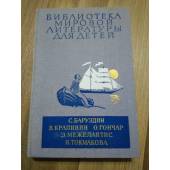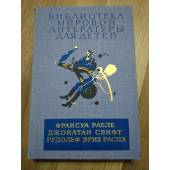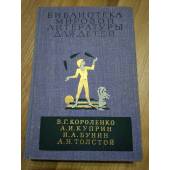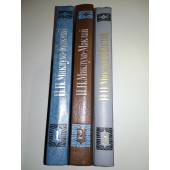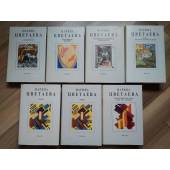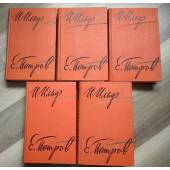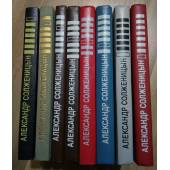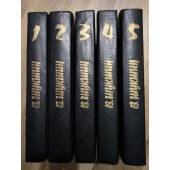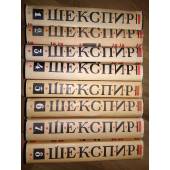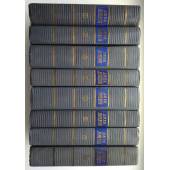
No products
Product successfully added to your shopping cart
There are %d items in your cart. There is 1 item in your cart.

Categories
- Albums (2080)
- Antique (before 1850) old books (before 1941) (582)
- Art and culture (5328)
- Audiobooks, compact discs (CD) (119)
- Autographed books (265)
- Board games (19)
- Books for school (4696)
-
Books in foreign languages
(8487)
- Books in Altai (4)
- Books in Azerbaijani (47)
- Books in Belarusian (46)
- Books in Bulgarian (2)
- Books in Dutch (2)
- Books in English (6653)
- Books in Estonian (10)
- Books in Finnish (7)
- Books in French (43)
- Books in Georgian (37)
- Books in Greek (2)
- Books in Hungarian (6)
- Books in Italian (12)
- Books in Japanese (7)
- Books in Karelian (3)
- Books in Kyrgyz language (6)
- Books in Latvian (46)
- Books in Lithuanian (7)
- Books in Norwegian (4)
- Books in Polish (14)
- Books in Portuguese (2)
- Books in Slovak (2)
- Books in Spanish (17)
- Books in Swedish (3)
- Books in Tajik (34)
- Books in the Adyghe language (3)
- Books in the Balkar language (8)
- Books in the Bashkir language (73)
- Books in the Buryat language (5)
- Books in the Kalmyk language (7)
- Books in the Karachai language (1)
- Books in the Komi language (5)
- Books in the languages of the peoples of the Caucasus (7)
- Books in the Mari language (17)
- Books in the Mokshan language (1)
- Books in the Mordovian language (3)
- Books in the Nogai language (1)
- Books in the Tatar language (101)
- Books in the Udmurt language (10)
- Books in the Yakut (Sakha) language (27)
- Books in the Yarzyan language (2)
- Books in Ukrainian (982)
- Books in Uzbek (9)
- Chuvash language books (29)
- Kazakh language books (8)
- Business. Economy (1614)
- Calendars (41)
-
Children's Literature
(10358)
- Books for parents (355)
-
Children's creativity and leisure
(896)
- Children's games. Experiments and experiments (15)
- Coloring pages (12)
- Crafts, cooking for children (6)
- Drawing for children (11)
- Make with your own hands (31)
- Modeling, application (7)
- Organization of children's parties (2)
- Origami, paper craft (5)
- Puzzles, crosswords for kids (7)
- Questionnaires, diaries, albums (1)
-
Educational and educational literature for children
(1729)
- Attention. Imagination. Memory (26)
- Basic security (4)
- Creative development (46)
- Foreign languages (102)
- General development. Manuals, reference books (83)
- General preparation for school (43)
- Introduction to the outside world (69)
- Logic. Thinking (30)
- Math and counting (42)
- Teaching reading and writing (89)
-
Educational literature for children
(771)
- Biographies for children (37)
- Books for boys (21)
- Books for girls (19)
- Culture, art, religion (49)
- Encyclopedias, reference books and other educational literature for children (181)
- History for children (87)
- Nature and the environment (244)
- Psychology. Etiquette (12)
- Science, technology, transport (54)
-
Fiction for children
(4341)
- Books for kids (111)
- Books on cartoons and films. Comics (81)
- Detectives and adventures for children (193)
- Foreign prose for children (306)
- Myths. Legends. Historical prose for children (66)
- Poetry for children (146)
- Russian prose for children (413)
- Science Fiction, Fantasy and Horror for Kids (116)
- Tales (500)
- Tales and stories about animals (146)
- Soviet children's books (893)
- Toy books (40)
- Collected works. Multivolume editions (3696)
- collection sets (50)
- Comics (53)
- Cookery (1379)
- Dictionaries. Phrasebooks (1321)
- Electronic books (10)
- Encyclopedia (1017)
- Engravings (7)
- Feng Shui (113)
- Fiction (84588)
- German and Germany (36052)
- gramophone records, vinyl (131)
- Guides (2049)
- Healthy lifestyle. Healthy eating. Fitness (1809)
- History (9795)
-
House. Life. Leisure.
(7734)
- Dom. Life (3174)
- Erotic books, books about sex, kamasutra (193)
- Hobby. Leisure (1658)
- Reference Literature (2202)
-
Sport
(955)
- Aerobics. Fitness. Yoga. Dancing (31)
- Board games (155)
- Combat and martial arts (81)
- Extreme sports (12)
- Gymnastics. Light and weightlifting (8)
- Olympic Games (13)
- Other sports (51)
- Physical culture and sport (72)
- Self-defense. Survival (20)
- Sport games (23)
- Tourism (84)
- Water sports (28)
- Winter sports (18)
- Kits (different books) (139)
- Kits (magazines) (60)
-
Magazines and newspapers
(2577)
- Architecture, interior (9)
- Astrology, esotericism (39)
- Bills (232)
- Calendars 2020 (1)
- Calendars 2021 (3)
- Cars, hunting, fishing (13)
- Celebrities, ZhZL (37)
- Children's magazines (13)
- Computer, technology (3)
- Cooking and Recipes (25)
- Crosswords, Scanwords (10)
- Editions with TV program (134)
- Entertainment magazines (7)
- Fashion, style, beauty (16)
- History (111)
- Hobbies, interests (101)
- Home, family, leisure (77)
- House, garden, vegetable garden (34)
- Literature, theatre, music (235)
- Magazines for men (209)
- Magazines for parents (2)
- Magazines for women (110)
- Medicine, health (155)
- Religion (10)
- Russian press abroad (483)
- Science, technology, fantasy (169)
- Sewing, knitting, needlework (4)
- Society, politics (635)
- Special Editions (60)
- Travel, countries (14)
- Maps, atlases (645)
- Military business. Weapons. Special services (4049)
- Miniature books (149)
- Music. Sheet music (1041)
- Postage stamps (92)
- Postcards (190)
- Posters (37)
-
Professional, educational literature
(24775)
-
Applied sciences. Technique
(2521)
- Agriculture. Veterinary medicine (40)
- Architecture (359)
- Chemical industry (104)
- Construction (446)
- Design (137)
- Energy (69)
- Engineering. Instrumentation (184)
- Food industry (19)
- Jewellery (22)
- Life safety (46)
- Light industry (39)
- Metallurgy (29)
- Mining (83)
- Nanotechnologies (5)
- Oil and gas industry (53)
- Other industries (101)
- Polygraphy (8)
- Radio engineering. Electronics. Communication (262)
- Technical Sciences (331)
- Technology of production (100)
- Timber and wood chemical industry (13)
- Transport (182)
-
Computer Literature
(487)
- Administration. Information security (4)
- Computer for … (16)
- Computer networks. Internet (23)
- Databases (8)
- Design systems (CAD/CAM) (1)
- General questions (42)
- Graphics, design, multimedia, games (27)
- Hardware (4)
- Informatics (28)
- MS Office. Microsoft office programs (11)
- Operating systems (12)
- PC work for beginners (18)
- Programming languages and environments (38)
- Humanities (8877)
-
Legal Literature
(1000)
- Civil law (54)
- Civil procedural law. Judiciary (8)
- Comments (12)
- Constitutional law. Administrative law (30)
- Criminal law (40)
- Criminology. Criminalistics (37)
- Customs law (8)
- Financial law (11)
- International law (34)
- Labor law. Social security law (9)
- Land law. Environmental law (3)
- Law enforcement agencies (23)
- Law in general. History and theory of state and law (30)
- Other branches of law (23)
- Regulatory acts. Reference literature (19)
- Right in everyday life (17)
- Textbooks and teaching aids (43)
- Workshops and practical aids (6)
-
Medicine and Health
(2421)
- Applied Medicine (41)
- Clinical Medicine. Internal Medicine (23)
- Cosmetology (20)
- Fundamentals of Medicine. Healthcare System (26)
- General pathology. General therapy (19)
- Narcology (12)
- Nervous system (29)
- Other branches of medicine (90)
- Pediatrics (52)
- Pharmacology. Toxicology (20)
- Popular and alternative medicine (1110)
- Psychiatry. Neuropathology. Sexopathology (71)
- Surgery (18)
- Monographs (1111)
- Natural sciences. Mathematics (2208)
- Social Sciences (5622)
-
Applied sciences. Technique
(2521)
- Religion. Esotericism (6300)
- Russian Abroad (books published abroad) (2587)
- Russian language (768)
- Russian language for children (Textbooks) (152)
- Soviet books until 1992 (12924)
- Yoga Books (158)
- Show All
Сенкевич Г. Собрание сочинений в девяти томах (полный комплект)
Good Condition
Item 1
5,5 kg
Sale the same product...More info
ATTENTION!!! If you have questions, write in messages BEFORE ordering. Books are sent not upon payment on the website, but ONLY after personal confirmation of the order through correspondence with me on the website, providing you with a phone number. Your phone number is required by the postal service and will be included along with your address during shipment. After shipping, I send all buyers an email with a link to track the movement of the parcel. Please note that letters may end up in spam during correspondence. Persons who do not pick up their parcels on time and then return them to me will be forever denied further orders.
~~~~~~~~~~~~~~ ~~~~~~~~~~
Senkevich G. Collected works in nine volumes (in eight books). Per. from Polish. M.: Fiction 1983-1985. 399 pp. + 671 pp.+ 543 pp.+ 511 pp.+ 423 pp.+ 831 pp.+ 447 pp.+ 591 pp. hardcover, tinted edge on top. Slightly enlarged format.
Henryk Sienkiewicz (Polish: Henryk Sienkiewicz, full name Henryk Adam Alexander Pius Sienkiewicz, Polish: Henryk Adam Aleksander Pius Sienkiewicz), May 5, 1846, Wola-Okrzejska in Podlasie, Kingdom of Poland, Russian Empire - November 15, 1916, Vevey, Switzerland) - Polish writer, Nobel Prize winner in 1905. In his early stories and short stories, he depicted the decline of patriarchal life (“The Old Servant”, 1875, “Ganya”, 1876), the fate of the peasantry (“Charcoal Sketches”, 1877, “Yanko the Musician”, 1879, etc.). Author of the historical trilogy “With Fire and Sword” (1883-1884), “The Flood” (1884-1886), “Pan Volodyevsky” (1887-1888). The first novel idealizes the struggle of the gentry of the Polish-Lithuanian Commonwealth with Ukraine during the time of Bogdan Khmelnitsky. The second part of the trilogy recreates the picture of the Polish liberation war with the Swedish intervention of 1655-1656. The third novel poetizes the military exploits of Polish knights during the Turkish invasion (1672-1673). The psychological novel Without Dogma (1889-1890) depicts a type of decadent aristocrat. In the novel “The Polanecki Family” (1893-1894), a satirical depiction of secular society contrasts with the idealization of a businessman from the gentry. The epic novel “Quo vadis” (in some Russian translations “Camo Coming,” 1894-1896) depicts the struggle of early Christians against the despotism of Nero. The historical novel “The Crusaders” (1897-1900) is dedicated to the struggle of Poles and Lithuanians with the Teutonic Order at the end of the 14th - beginning of the 15th centuries. During his lifetime he became one of the most famous and popular Polish writers in Poland and abroad. After the trilogy “With Fire and Sword”, “The Flood”, “Pan Volodyevsky” he became the Polish writer with the highest earnings (he received 70 thousand rubles from the publisher for the right to publish the trilogy for 20 years). Creativity played a big role in the history of Polish culture and received worldwide recognition (Nobel Prize in Literature, 1905, “for outstanding services in the field of epic”). The novel “Quo vadis” has been translated into more than forty languages. Contents: Volume 1 The Old Servant, Ganya, Charcoal Sketches, Comedy of Errors, On the Prairie, Angel, Janko the Musician, Orso, For Bread, At the Lighthouse, Meeting at Mariposa, Bartek the Victorious, Sachem, Cranes. (stories and stories). Volume 2 With fire and sword. Volume 3 Flood part 1,2. Volume 4 Flood part 2,3. Volume 5 Pan Volodyevsky. Volume 6-7 Without dogma, The Polanetsky Family. Volume 8 Quo vadis. Volume 9 Crusaders.
Data sheet
| Publisher | Художественная литература |
| Format | Чуть увеличенный |
| Publication date | 1983-1985 |
| Bookbinding | Hardcover |
| Language | Russian |
| noticeable cover scuffs | yes |
All author\'s books:
Seller Info/Map |
Seller type: Private person
Подробнее
Минск
Belarus





